BENZTROPINE - ORAL
PHONETIC PRONUNCIATION: (BENZ-troe-peen)
COMMON BRAND NAME(S): Cogentin
GENERIC NAME(S): benztropine mesylate
Uses
USES: Benztropine is used to treat symptoms of Parkinson's disease or involuntary movements due to the side effects of certain psychiatric drugs (antipsychotics such as chlorpromazine/haloperidol). Benztropine belongs to a class of medication called anticholinergics that work by blocking a certain natural substance (acetylcholine). This helps decrease muscle stiffness, sweating, and the production of saliva, and helps improve walking ability in people with Parkinson's disease. Anticholinergics can stop severe muscle spasms of the back, neck, and eyes that are sometimes caused by psychiatric drugs. It can also decrease other side effects such as muscle stiffness/rigidity (extrapyramidal signs-EPS). It is not helpful in treating movement problems caused by tardive dyskinesia and may worsen them. Benztropine should not be used in children younger than 3 years.
How to use BENZTROPINE - ORAL
HOW TO USE: Take this medication by mouth, usually 2 to 4 times a day with meals and at bedtime, or as a single dose at bedtime, or as directed by your doctor. Your doctor may start you at a low dose and increase your dose slowly to find the best dose for you. The dosage is based on your medical condition, age, and response to therapy. If you are using the oral solution, measure your dose with a special measuring spoon or device. Do not use a household spoon because it may not provide the correct dose. Take this medication regularly in order to get the most benefit from it. To help you remember, take it at the same times each day. Take this medication at least 1 hour before antacids containing magnesium, aluminum, or calcium. Allow at least 1-2 hours between doses of benztropine and certain drugs for diarrhea (adsorbent antidiarrheals such as kaolin, pectin, attapulgite). Take this medication at least 2 hours after ketoconazole. Antacids and some drugs for diarrhea may prevent the full absorption of benztropine, and this product may prevent the complete absorption of ketoconazole when these products are taken together. If you are taking this medication for side effects from another medication, your doctor may instruct you to take it on a regular schedule or only as needed. If you are taking this medication for Parkinson's disease, your doctor may change the dose of your other medications (e.g., levodopa). Follow your doctor's instructions closely. When used for an extended period, this medication may not work as well and may require different dosing. Talk with your doctor if this medication stops working well. Though it helps many people, this medication may sometimes cause addiction. This risk may be higher if you have a substance use disorder (such as overuse of or addiction to drugs/alcohol). Do not increase your dose, take it more often, or use it for a longer time than prescribed. Properly stop the medication when so directed. Some conditions may become worse when the drug is suddenly stopped. Your dose may need to be gradually decreased. It may take 2-3 days before the benefit of this drug takes effect. Inform your doctor if your condition persists or worsens.
Side Effects
Precautions
Interactions
Overdose
Images
Reviews
Faq for BENZTROPINE - ORAL
Benzatropine is used to treat the symptoms of Parkinson's disease, such as tremors, muscle stiffness, and difficulty moving.
Benzatropine works by blocking the action of a certain natural substance (acetylcholine) in the brain, which helps to reduce the symptoms of Parkinson's disease.
Common side effects of Benzatropine may include dry mouth, blurred vision, constipation, difficulty urinating, and dizziness.
Benzatropine is primarily used for Parkinson's disease, but it may also be used to treat side effects caused by certain medications, such as certain psychiatric drugs.
Benzatropine is usually taken by mouth as directed by your doctor. It is important to follow the dosage instructions provided and not to exceed the recommended dose.
If you miss a dose of Benzatropine, take it as soon as you remember. However, if it is close to the time for your next dose, skip the missed dose and resume your usual dosing schedule. Do not double the dose to catch up.
Benzatropine may interact with other medications, including certain antidepressants, antihistamines, and muscle relaxants. It is important to inform your healthcare provider about all the medications you are taking to avoid any potential drug interactions.
There is limited information about the safety of Benzatropine during pregnancy or breastfeeding. It is best to consult with your doctor before taking this medication if you are pregnant or nursing.
No, Benzatropine is not known to be habit-forming. However, it is important to follow your doctor's instructions and not to exceed the recommended dose to avoid potential risks or side effects.
Disclaimer
IMPORTANT: HOW TO USE THIS INFORMATION: This is a summary and does NOT have all possible information about this product. This information does not assure that this product is safe, effective, or appropriate for you. This information is not individual medical advice and does not substitute for the advice of your health care professional. Always ask your health care professional for complete information about this product and your specific health needs.
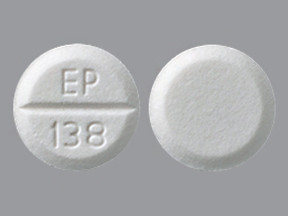
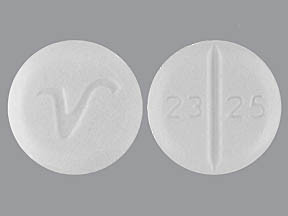
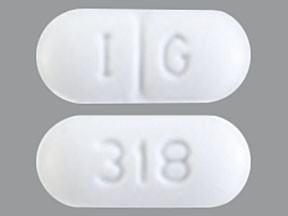
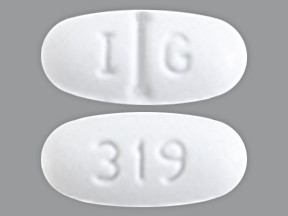
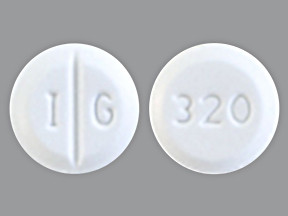
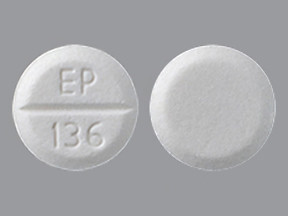
No Reviews Yet